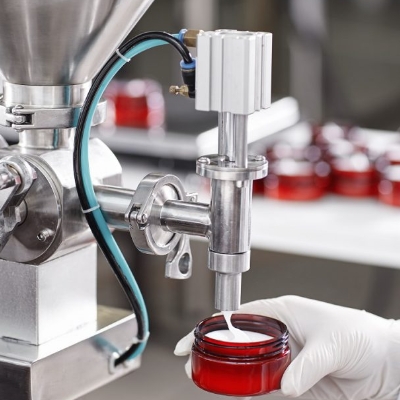Emerging Technologies and Product Innovations: Explore new technologies and innovation trends in the skincare industry and how to incorporate cutting-edge technologies into everyday products through OEM manufacturing.
- 2024-07-01 18:04:20
The skincare industry has developed rapidly in recent years, becoming one of the most competitive spaces in the consumer goods market. Constant pressure to develop and innovate has driven companies to explore emerging technologies that can not only substantially improve the efficacy of their products but also create a unique place for themselves in the market. This comprehensive article delves into the latest technological trends in the skincare product innovation, focusing on how original equipment manufacturers (OEMs) can incorporate cutting-edge technologies into everyday skincare products.
Personalized Skincare Devices
Personalized skincare devices are geared towards creating customized products and routines tailored to individual needs and preferences through data-driven insights. These devices use sensors and algorithms to analyze various factors, such as skin type, age, and living environment, and provide customized recommendations based on the collected data.
OEM manufacturers can capitalize on this trend by offering personalized skincare devices that can be easily integrated into their customer's daily routine, providing an added value and a unique selling proposition.
i. Remote Skin Analysis Technology
Remote skin analysis technology uses advanced artificial intelligence algorithms and high-resolution imaging to analyze an individual's skin condition remotely. OEMs can incorporate this technology into devices such as smartphone applications to provide actionable insight and recommendations for personalized skincare routines.
ii. 3D Face Mask Printers
With the widespread adoption of 3D printing, OEMs can create bespoke facial mask printers designed to produce customized face masks. These devices scan the user's face, detect unique facial features, and create a tailored mask offering a perfect fit and targeted treatment.
Advanced Formulations and Delivery Systems
The advancement in biotechnology and bioengineering has introduced novel formulations and delivery systems, allowing skincare products to penetrate the skin more effectively and deliver active ingredients with greater precision.
i. Nanotechnology
Nanotechnology involves manipulating and controlling materials at the nanometer scale to produce new, improved properties. Integrating nanotechnology into skincare products enables the creation of nano-scale active ingredients, enhancing product effectiveness, stability, and ease of absorption. OEMs can fabricate nanocarriers like liposomes, solid lipid nanoparticles, and nanoemulsions to deliver active ingredients in their products.
ii. Microencapsulation
Microencapsulation is a process wherein an active ingredient is encapsulated within a protective covering or carrier, allowing for controlled release, protection from degradation, and improved stability. This technology is beneficial in prolonging the shelf life of skincare products while also offering a targeted solution for various skin concerns.
Wearable Skincare Technology
The integration of wearables in the skincare industry showcases immense potential in offering real-time information and personalized guidance to help individuals make better skincare choices.
i. Skincare Sensors
Wearable skincare sensors offer immediate feedback on various factors affecting skin health, such as UV exposure, pollution levels, and skin hydration. OEMs can develop and integrate these sensors into a range of products, like smartwatches or patches, to empower users to make informed decisions regarding their skincare routine.
ii. Smart Fabric
Smart Fabric technology integrates advanced textile manufacturing with active ingredients to produce a fabric that benefits the skin while wearing it. This innovative technology offers the possibility of creating clothes that can deliver targeted skincare treatments, such as moisturizing and UV protection, throughout the day.
Environmentally Friendly Innovations
Developing environmentally sustainable products is becoming increasingly important. The adoption of eco-friendly technologies enables OEMs to demonstrate their commitment to safeguarding the environment, subsequently appealing to the growing population of conscious consumers.
i. Biodegradable Packaging
OEM manufacturers can utilize biodegradable packaging materials to reduce the environmental impact of their products, from manufacturing to disposal. Options include biodegradable plastics, paper-based packaging, and plant-based materials, playing a crucial role in reducing waste and pollution.
ii. Waterless Skincare Products
The skincare industry has begun exploring alternatives to traditional water-based formulations to combat the increased environmental strain caused by extensive water usage. Consequently, manufacturers are developing and promoting waterless skincare products, aiming to minimize water consumption and environmental damage.
Waterless skincare products boast advantages beyond the apparent ecological benefits. By eliminating water from their formulas, OEMs can offer highly concentrated products that effectively target specific skincare concerns. The absence of water also eliminates the need for excessive preservatives and fillers, typically found in traditional skincare products. This innovation paves the way for skincare products that offer a more potent and pure formulation without the addition of unnecessary ingredients.
Several waterless skincare products have emerged in the market, including:
Powdered cleansers and exfoliants: These dry formulas are mixed with a small amount of water before application, providing a gentle and efficient cleansing experience.
Solid skincare bars: Solid bars replace liquid facial cleansers, shampoos, and body washes, offering an eco-friendly alternative without sacrificing quality or effectiveness.
Anhydrous facial serums and treatments: Formulated without the use of water, these concentrated products offer potent active ingredients for maximum efficacy.
Multipurpose products: Facilitating the concept of minimalism, multipurpose products can replace numerous traditional skincare items, streamlining an individual's skincare routine and reducing the consumption of water and packaging.
Encouraging the adoption of waterless skincare products entails investing in targeted marketing campaigns that emphasize not only the environmental advantages but also the performance and benefits related to cost and efficacy. Successful transition towards waterless skincare products necessitates parallel efforts to educate consumers and increase awareness of these innovations.
Procurement Advice From YEFULSKINCARE
When formulating skincare products, it is essential to consider specific procurement aspects during the ingredient selection phase of development. Experienced skincare manufacturers have in-depth knowledge of minimum order quantities and costs for various ingredients. Before formulating a product, these factors must be considered to ensure that only economically viable ingredients are selected.
Skincare manufacturers like YEFULSKINCARE have long-standing relationships with major suppliers, allowing them to leverage these networks when sourcing hard-to-find or obscure raw materials. This proves invaluable when ensuring timely procurement and cost-effective production runs.
In conclusion, partnering with YEFULSKINCARE offers numerous advantages to skincare companies looking to develop and launch successful product lines. Their industry experience, professional knowledge, state-of-the-art facilities, and commitment to cost-effective solutions make them an ideal choice for those seeking expert guidance and support through the product development process.




